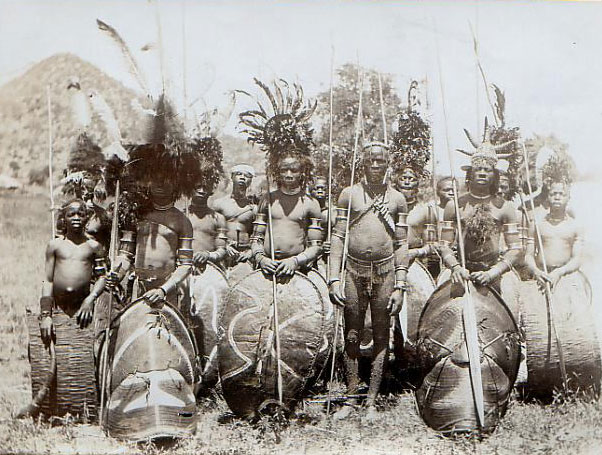Luo
The Luo, an ethnic group of East Africa, inhabit a region on the eastern side of Lake Victoria. They trace their descent from people who migrated south from the Nile Valley region of southern SUDAN about 500 years ago. The majority of the Luo live in KENYA, but sizable numbers are also found in UGANDA and TANZANIA.
Luo territory consists of flat dry country near Lake Victoria and hilly fertile areas to the north and east. The rural Luo live mainly by farming but also engage in livestock herding and fishing. Cattle play an important role in their society, both as ceremonial sacrifices and as bridewealth—payments from a groom and his kin to the bride's family. Rural Luo generally live in scattered homesteads surrounded by fields. Most Luo towns, including Kisumu, grew up around important marketplaces. Luo-speaking communities can also be found in NAIROBI, Mombasa, and other East African cities. These urban dwellers, who work mainly as laborers, maintain strong economic, social, and spiritual ties to Luo communities in the Lake Victoria region.

Luo society is organized according to clans that trace descent through male relatives. Inheritance of land and cattle is also through the male line. When a Luo woman marries, she moves to the home of her husband, creating bonds that link various Luo communities. Since Kenya gained its independence, the Luo have tended to play important roles in opposition parties because GIKUYU-speakers and members of Kalenjin groups have dominated the country's political and economic life.
Education is very important to the Luo, who are known for their skill in English. Because of this, Luo-speakers have dominated many departments in East African universities. In religion, most Luo practice Roman Catholicism or Protestant faiths, although some are followers of Islam. Luo country is also home to large numbers of independent Christian churches. (See also Christianity in Africa, Ethnic Groups and Identity, Mboya, Tom.)